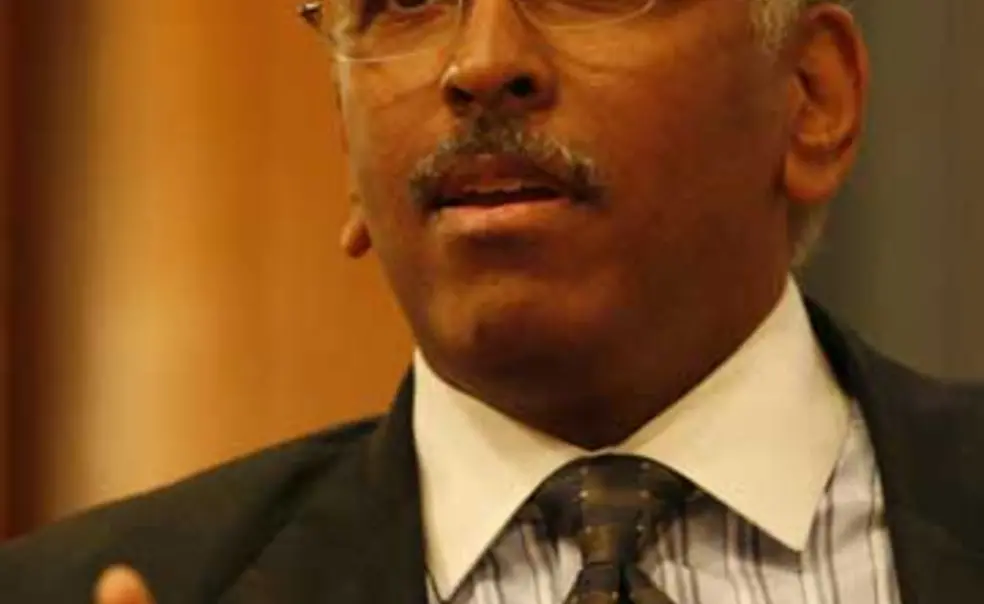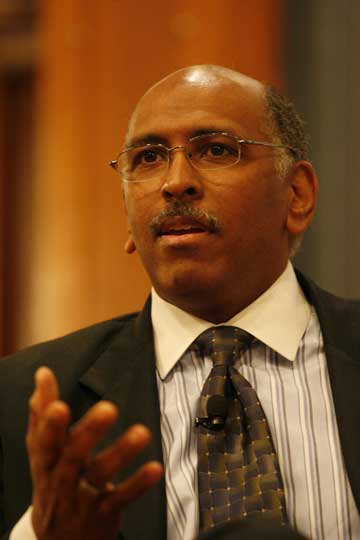RNC chairman Steele touts individualism, freedom
Michael Steele, the Republican National Committee chairman, in his Feb. 22 conversation with Professor Eddie Glaude Jr. *97. (Photo by Beverly Schaefer) |
By Brittany Urick ’10
The Center for African American Studies hosted a conversation between Michael Steele, chairman of the Republican National Committee, and Professor Eddie Glaude Jr. *97 Feb. 22 in McCosh 50. Packed with students and members of the community, the lecture hall became a forum for debate toward the end of the hour, as both Glaude and audience members challenged Steele on how he reconciles his conservative stance with the economic inequality and dearth of opportunity facing black Americans today.
Steele brought a sense of humor to the discussion but fiercely defended his views, which he attributed to the values of sacrifice and self-sufficiency instilled by his mother.
"The promise of this country wasn't what was promised to her," Steele said. "It was what was promised to me. She found a way to help me realize it."
On the topic of bipartisanship, Steele said the concept, as many envision it, is "a fiction." While achieving consensus in a tension-filled political climate is important, finding common ground in order to move forward does not require giving up what one believes, he said.
Steele, who described himself as a cross between Lincoln and Reagan, said that he relies on the philosophical principles of individualism and freedom, strong undercurrents that run through his recently published book, Right Now: A 12-Step Program for Defeating the Obama Agenda. With regard to the struggles currently facing black Americans, Steele claimed that African-Americans cannot expect big government to be a panacea but instead must take matters into their own hands, work together to bridge ideological differences, and demand more from their local communities.
"At what point do [African-Americans] say 'enough?'" Steele asked. "We have so allowed our agenda to be hijacked by a political mindset, whether from the right or the left, Republican or Democrat, that we've been lost in translation."
Glaude pushed Steele on his opinions, saying that the circumstances facing the truly disadvantaged today are far different from those of the time in which he was raised. But Steele held fast to his notion that the creation of wealth must come from within black communities (an assertion that drew several comments and the palpable frustration from the audience). Steele acknowledged the importance of this issue, deeming it "a policy discussion that the country has not had in a long, long time, if ever."













No responses yet